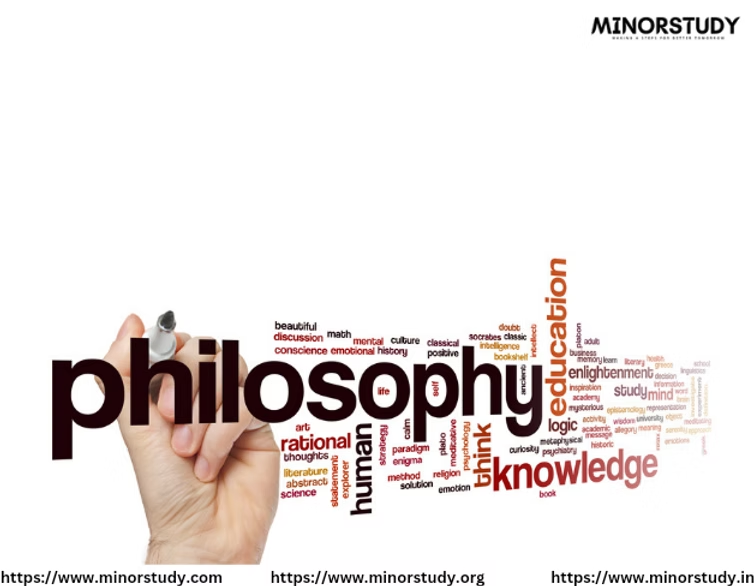Doctor of Philosophy (PhD): An Overview
The Doctor of Philosophy (PhD) is the highest academic degree awarded in most fields of study. It is a research-focused program designed to cultivate expertise and original contributions to knowledge within a specific discipline. A PhD typically requires several years of advanced study, original research, and the successful defense of a dissertation.
Key Features of a PhD Program
Duration:
Typically takes 3 to 7 years to complete, depending on the country, field of study, and individual progress. Some fields (like sciences) may be completed in a shorter time frame, while humanities and social sciences may take longer.
Core Focus:
Research is the central focus of a PhD. Students are expected to conduct original research that contributes new insights to their field of study.
Emphasis on developing critical thinking, analytical skills, and the ability to engage with complex theoretical frameworks and methodologies.
Eligibility:
Completion of a Master’s degree (in most cases), although some universities may allow direct entry from a Bachelor’s degree for exceptional candidates.
A strong academic record and research proposal are typically required.
Curriculum:
While PhD programs are primarily research-based, they may include core courses in research methodologies, theory, and discipline-specific topics.
Comprehensive exams may be required to test broad knowledge of the field before proceeding to dissertation research.
The dissertation is the central component of the PhD, representing the culmination of the student’s research efforts.
PhD Program Structure
Coursework (Typically in the First Year or Two):
Some programs require a small number of courses to help students build a foundation in research methods and specialized topics within their field.
Courses may include research design, theory and practice, advanced topics in the chosen discipline, and academic writing.
Comprehensive Exams:
After coursework, many programs require students to pass comprehensive exams, which test knowledge of the field and readiness to undertake independent research.
Research Proposal:
Students must develop and submit a research proposal outlining the intended research project, its significance, methodology, and expected contribution to the field.
Dissertation/Thesis:
The dissertation is a substantial, original piece of research that adds new knowledge to the academic field. It must be written, revised, and defended before a panel of experts.
Dissertation Defense:
The final stage involves presenting the dissertation to a panel of faculty members, answering their questions, and defending the research process and findings.
Fields of Study for a PhD
A PhD can be pursued in almost any academic discipline, including but not limited to:
Natural Sciences: Biology, Chemistry, Physics, Environmental Science, etc.
Engineering: Civil Engineering, Electrical Engineering, Computer Science, etc.
Social Sciences: Psychology, Sociology, Political Science, Anthropology, etc.
Humanities: History, Philosophy, Literature, Languages, etc.
Business: Business Administration, Economics, Marketing, Finance, etc.
Health Sciences: Medicine, Public Health, Nursing, Pharmacology, etc.
Arts: Music, Fine Arts, Theater, Creative Writing, etc.
Career Opportunities with a PhD
A PhD opens up a wide range of career opportunities, both within academia and beyond. Some common career paths include:
Academic Careers:
University Professor: Teaching and conducting research at universities and colleges.
Researcher: Conducting independent or collaborative research in academic institutions.
Postdoctoral Researcher: Engaging in further research after completing a PhD, often as a stepping stone to a faculty position.
Industry:
Research Scientist: Leading research initiatives in technology, medicine, pharmaceuticals, and other industries.
Data Scientist/Analyst: Applying research and analytical skills to solve complex problems in various industries.
Consultant: Providing expertise and strategic advice to businesses, governments, or organizations.
Government and Non-Profits:
Policy Analyst: Conducting research to support policymaking in government or non-governmental organizations (NGOs).
Public Health Expert: Working on research, data analysis, and policy initiatives in public health sectors.
Think Tank Researcher: Contributing to societal issues through research and advocacy in think tanks.
Entrepreneurship:
Some PhD holders use their research expertise to start their own businesses or consulting firms, especially in technology or healthcare sectors.
Skills Acquired in a PhD Program
Advanced Research Skills:
Ability to design and conduct original research, analyze complex data, and contribute new knowledge to the field.
Critical Thinking and Problem-Solving:
Engaging with and critiquing existing research, theories, and methodologies to develop new ideas and solutions.
Academic Writing and Communication:
Writing clear, rigorous, and well-supported research papers, articles, and dissertations.
Presenting research findings in conferences, academic journals, and public forums.
Project Management:
Managing large, complex research projects, including planning, data collection, analysis, and dissemination of findings.
Teaching and Mentoring:
Teaching undergraduate or graduate courses and mentoring students in research, which are often part of a PhD student’s responsibilities.
Advantages of a PhD
Expertise:
PhD graduates become experts in their chosen field, with the ability to contribute original insights and advancements.
Career Advancement:
A PhD can open doors to high-level positions in academia, research institutions, industry, and government.
Intellectual Fulfillment:
For those passionate about their subject, a PhD provides an opportunity for intellectual growth, independence, and achievement.
Networking Opportunities:
PhD students interact with leading experts, researchers, and professors, which can open doors for collaboration, publications, and career opportunities.
Higher Earning Potential:
Many professions that require a PhD offer higher salaries due to the specialized knowledge and expertise acquired during the program.
Challenges of a PhD
Time Commitment:
The length and rigor of the PhD program can be demanding, requiring a strong commitment of several years.
Isolation:
PhD students often work independently, which can feel isolating, especially during long research phases.
Stress and Pressure:
Writing and defending a dissertation, dealing with research setbacks, and meeting academic expectations can be stressful.
Competitive Job Market:
Academic positions, especially tenured faculty roles, can be highly competitive, with limited availability in certain fields.
Conclusion
A Doctor of Philosophy (PhD) is an advanced academic degree that allows individuals to develop expertise and make significant contributions to their field through original research. It prepares graduates for careers in academia, research, industry, and beyond. While challenging and time-consuming, a PhD can be highly rewarding, offering intellectual growth, career advancement, and the opportunity to make a lasting impact on a particular discipline.








